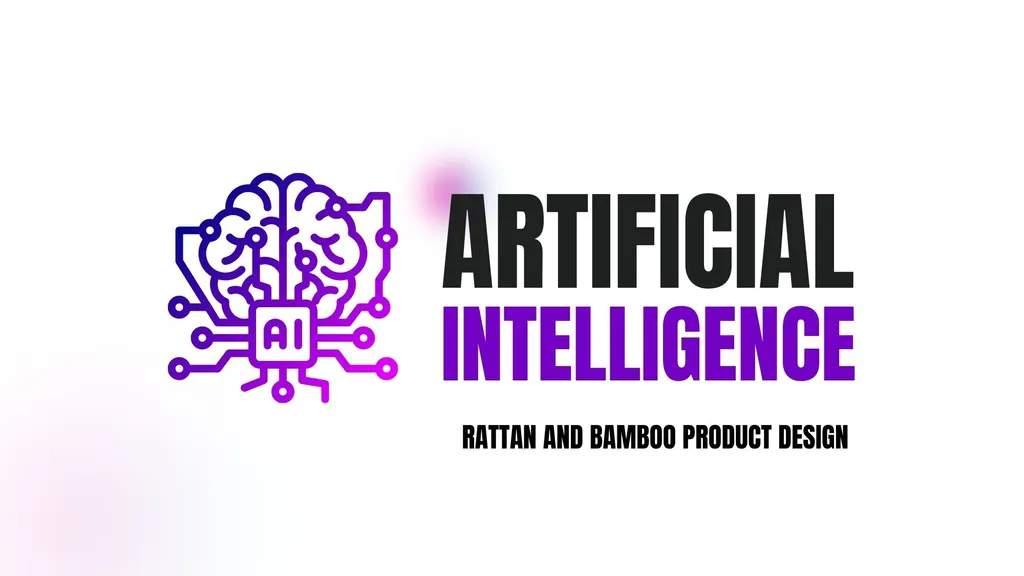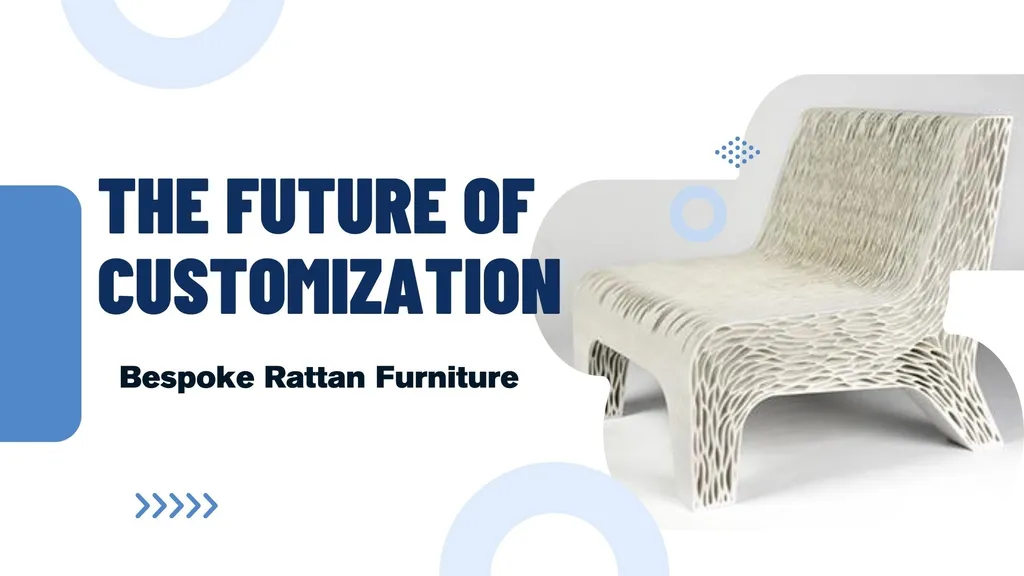
In an era where sustainability drives innovation, the fusion of artificial intelligence (AI) with the timeless craft of rattan and bamboo product design is reshaping the industry. This powerful synergy blends traditional craftsmanship with cutting-edge technology, fostering creativity, efficiency, and eco-conscious practices. From reimagining design processes to optimizing material use, AI is revolutionizing how rattan and bamboo products are crafted, ensuring they meet modern demands while preserving their natural allure.
AI-Powered Design Innovation
AI is transforming rattan and bamboo product development by enabling designers to explore endless creative possibilities. Through generative design, AI algorithms analyze vast datasets to propose innovative configurations that balance aesthetics, functionality, and sustainability. For instance, AI can suggest intricate weaving patterns or predict structural integrity, ensuring designs are both beautiful and durable. By leveraging consumer trends and material properties, AI empowers designers to create products that resonate with contemporary tastes while honoring the organic essence of rattan and bamboo.
Enhancing Sustainability Through AI
Sustainability lies at the heart of rattan and bamboo craftsmanship, and AI amplifies this commitment. AI-driven tools optimize material selection by assessing quality, strength, and environmental impact, ensuring eco-friendly sourcing and minimal waste. Lifecycle analysis and resource optimization enable designers to create products with a reduced carbon footprint. For example, AI can forecast how bamboo performs in humid conditions, guiding the creation of long-lasting, sustainable designs that align with global environmental goals.
Personalization and Consumer Insights
AI’s ability to analyze consumer data transforms how rattan and bamboo products are tailored to market needs. By processing purchasing patterns, social media feedback, and browsing habits, AI uncovers trends that inform targeted designs and marketing strategies. Personalization platforms allow customers to customize bamboo furniture in real-time, adjusting styles or finishes to suit their preferences. This consumer-centric approach not only enhances satisfaction but also reduces unsold inventory, supporting sustainable production.
Streamlining Material Selection
AI refines the material selection process for rattan and bamboo, ensuring optimal use of these natural resources. Advanced algorithms evaluate material properties, such as tensile strength or growth patterns, to recommend the best applications. AI also predicts cost fluctuations and environmental impacts, promoting cost-effective and eco-conscious choices. For instance, an AI tool might suggest a bamboo species ideal for outdoor furniture, enhancing durability while adhering to sustainable practices.
Future Trends in AI-Driven Design
The future of AI in rattan and bamboo design is bright, with emerging trends poised to further elevate the industry. Smart design platforms will simplify creative processes, while iterative material discovery will unlock new applications for these materials. AI’s role in biomimicry will inspire designs that mimic nature’s efficiency, creating products that are both innovative and environmentally harmonious. As AI evolves, it will continue to bridge tradition and technology, ensuring rattan and bamboo remain relevant in a high-tech world.
Challenges and Ethical Considerations
While AI offers immense potential, its integration comes with challenges. High-quality data is essential for accurate AI outputs, requiring robust collection and preprocessing systems. Ethical concerns, such as preserving cultural heritage and ensuring equitable access to AI tools for small-scale artisans, must be addressed. By fostering collaboration between technology and traditional craftsmanship, the industry can ensure AI enhances rather than overshadows artisanal skills.
The integration of AI into rattan and bamboo product design marks a new era of innovation, sustainability, and personalization. By blending advanced technology with natural materials, AI empowers designers to create products that are both modern and eco-friendly. As the industry evolves, companies like Ethical Handicraft Manufacturer (EHM) are at the forefront, leveraging AI to craft sustainable, beautifully designed rattan and bamboo products that captivate global markets while honoring tradition.




